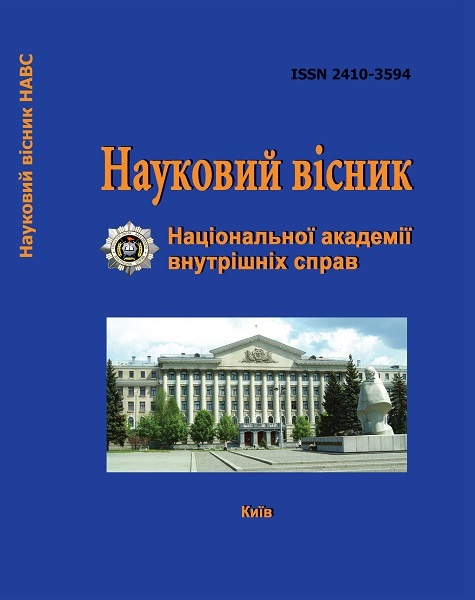Right to Life and Right to the Integrity of the Person: Bioethical Aspects of Human Rights Evolution
Abstract
The article presents the current modern bioethical trend in the international human rights law, since progress in biology and medicine has increased the ability to manage and control the human life process, which raises the issue of human rights protection. The analysis of a number of international documents (Universal Declaration of Human Rights; Convention for the Protection of Human Rights and Fundamental Freedoms, International Covenant on Civil and Political Rights; Convention against Torture and Other Cruel, Inhuman or Degrading Treatment or Punishment; European Convention for the Prevention of Torture and Inhuman or Degrading Treatment or Punishment; Pact of San Jose; Oviedo Convention; Charter of Fundamental Rights of the European Union and others) in the context of the relationship between the right to life and the right to integrity, which becomes an integral part of it, in connection with biology and medicine, has been performed. The author notes the tendency towards the expansion of human rights in the context of international law, their detail in view of the general moral validity of the application of such achievements to human beings: particularly in issues of protection the human genome against unlawful interference, rights to life on the prenatal stage of human development, violation the principle of informed agreement on donation and transplantation (in particular post-mortem), protection against involuntary biomedical interference in the human body, etc. Accented on expanding the content of the right to life, which ceases to be only individual human rights, but it is the guarantee of security of human race. First, it is provided by imposition of prohibitions on illegal acts that degrade human dignity (torture, cruel, inhuman or degrading treatment or punishment, involuntary medical or scientific research on humans), and is supplemented by the right to security of a person. With the development of scientific and technological progress in biology and medicine, its content is expanded by the right to integrity. Currently, the content of the right to life is being extended so much that it cannot be interpreted only in the context of abolition of the death penalty, international responsibility for committing war crimes and crimes against humanity, etc., but in view of the development of biotechnology which cause serious overt and hidden threat to the main value of human – his life. This approach leads to the transformation of the idea of the right to life, not only as the main fundamental human rights, but as a set of rights relating to life through the prism of bioethics and international law. The author states that the constant development of biology and medicine, which affects human life, its rights and dignity, necessitates the codification of bioethical norms. It would allow to use them effectively in the mechanism of national and international legal protection of human rights in the field of biomedicine. It would also contribute to the general unification of terminology in order to avoid divergences in the interpretation of norms. There is also a need to improve existing and create new effective mechanisms for international human rights protection that would cover a specific category of biomedical issues.
Downloads
Abstract views: 326 PDF Downloads: 466
- Authors reserve the right to authorship of their own work and transfer to the magazine the right of the first publication of this work under the terms of the Creative Commons Attribution License, which allows other persons to freely distribute published work with mandatory reference to authors of the original work and the first publication of an article in this magazine.
- Authors have the right to enter into separate additional agreements on non-exclusive dissemination of the work in the form in which it was published in the journal (for example, to post an article in the institution's repository or to publish as part of a monograph), provided that the link to the first publication of the work in this journal is maintained.
- The journal's policy allows and encourages the posting of articles by authors on the Internet (for example, in electronic storehouses of institutions or on personal websites), both before the submission of this manuscript to the editorial office and during its editorial processing, as this contributes to the creation of a productive scientific discussion and positively affects the efficiency and dynamics of citing the published work.




